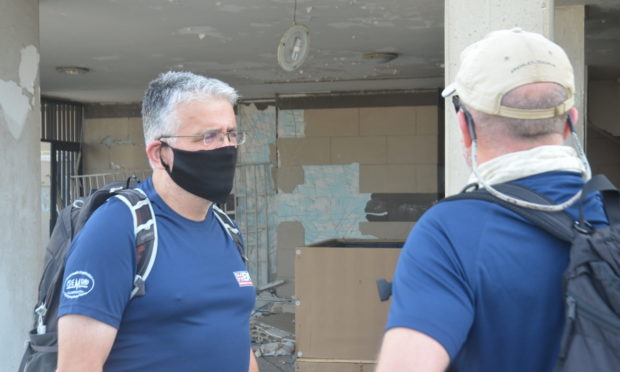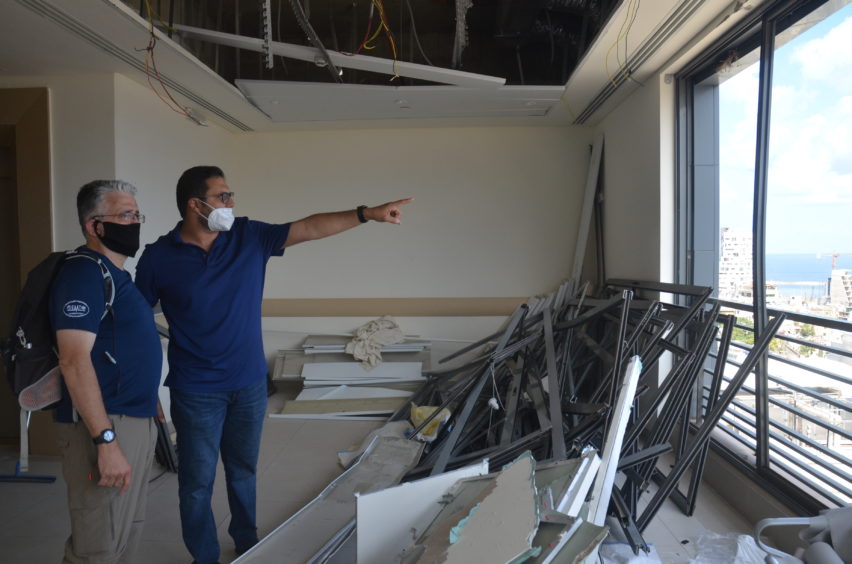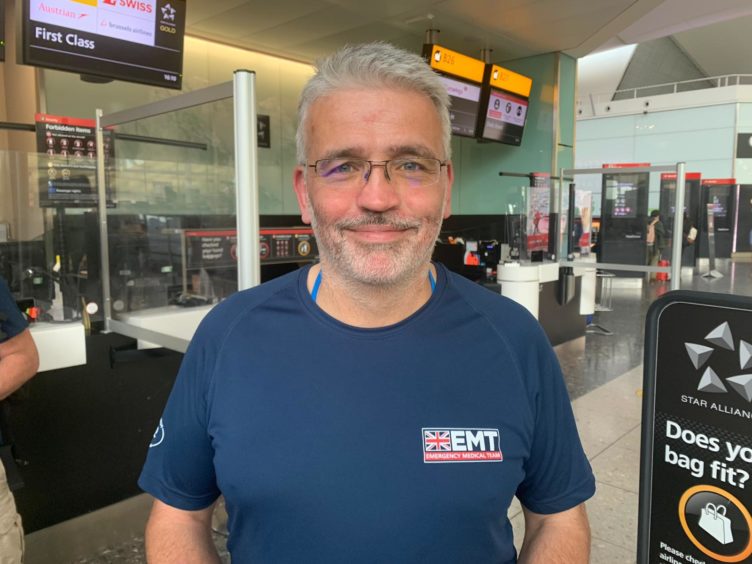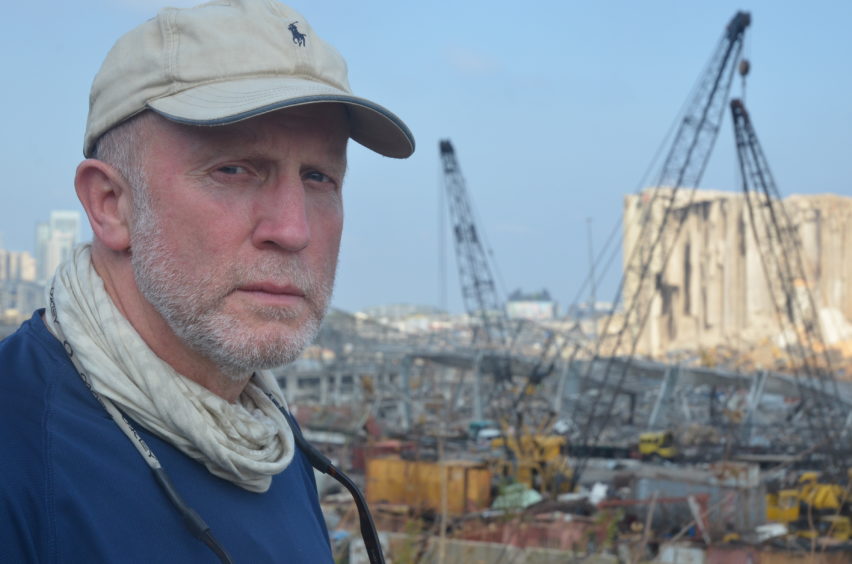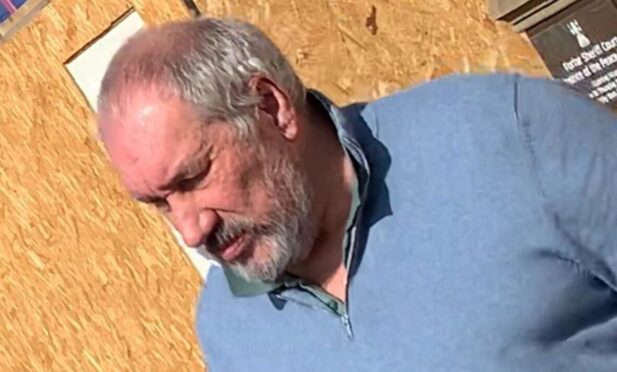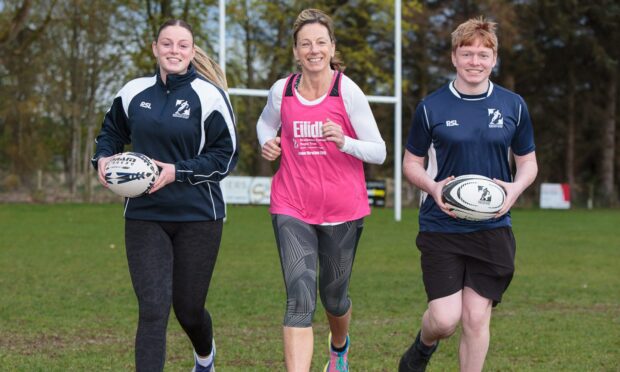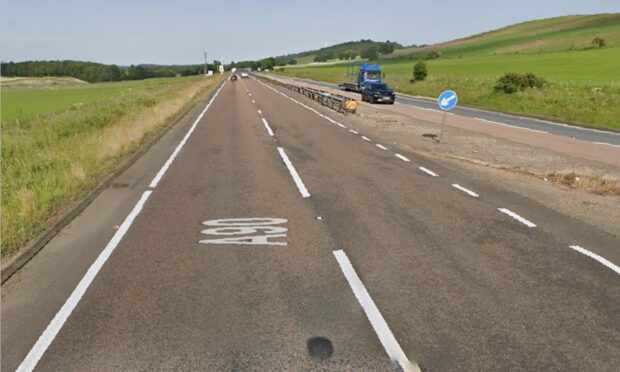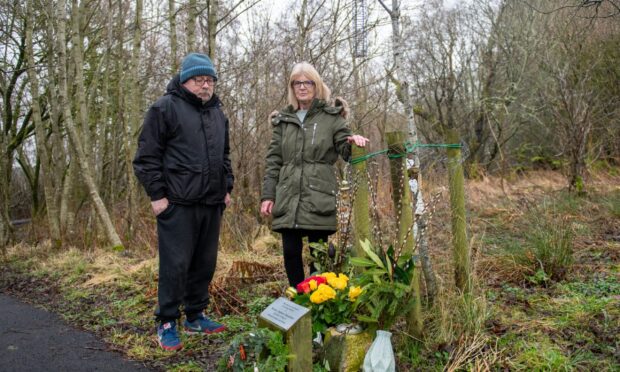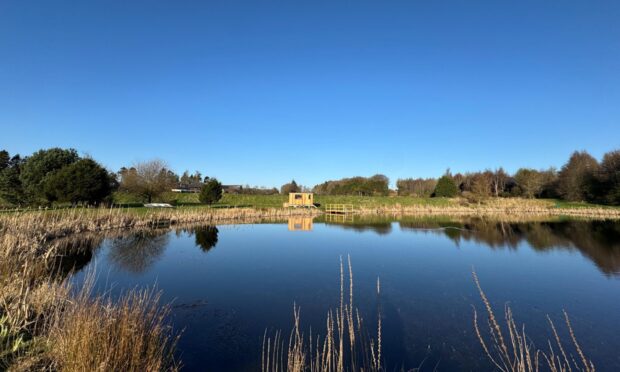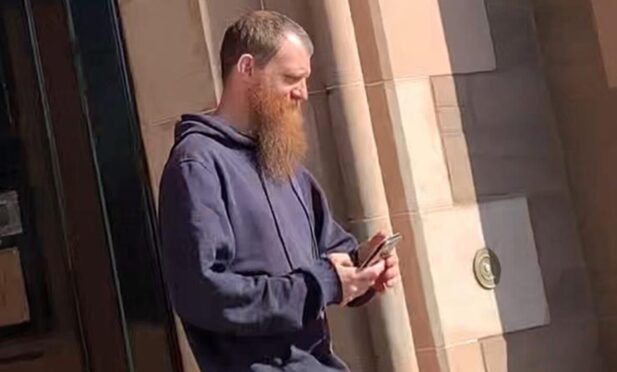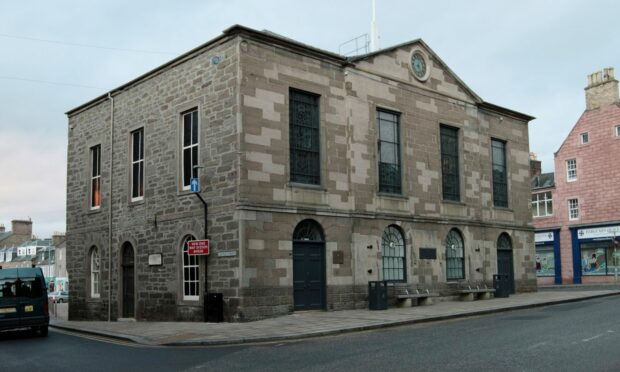A heroic Angus medic has spoken of the humanitarian catastrophe facing the people of Beirut after witnessing the “unimaginable” aftermath of the Lebanese capital’s devastating chemical explosion.
Montrose-born nurse David Anderson and Inverness-based surgeon Andy Kerr were in the disaster zone within days of the port blast which has claimed more than 200 lives and injured 6,000.
The pair are part of the UK Emergency Medical Team (UK EMT) deployed to Beirut to help in the aftermath of last Tuesday’s huge blast.
Working with charities UK-Med and Humanity Inclusion, the medics will report back to the Department for International Development on what help is needed.
UK-Med health advisor David said the scale of the ammonium nitrate blast disaster was beyond anything he has previously encountered.
Last year, the 51-year-old helped with the international response to cyclones Idai and Kenneth in Mozambique, carried out Ebola preparedness work in Rwanda, led efforts to deal with the measles outbreak in Samoa and was also deployed to crisis countries South Sudan and Myanmar.
“The Ebola crisis is one thing and it wasn’t a very pleasant task, but this is absolutely the biggest thing that I have been deployed to for support in relation to a mass casualty event,” he said.
“We were not there when those patients came through the door – however you can see the aftermath and it’s not a pleasant thing.
“We’ve visited the blast site. It’s a crater and the buildings in the immediate vicinity of the warehouses have been pretty much levelled.”
David, who now lives in the East Midlands and spearheaded part of the UK’s Covid-19 battle at Manchester’s NHS Nightingale field hospital, said Lebanese medics had done an “outstandingly good job dealing with a mass casualty event on a scale that is just unimaginable.”
He added: “As an emergency nurse and humanitarian health advisor, I can only imagine how horrific it was to deal with the huge numbers of patients in the initial hours after the explosion.
Surgeon Andy revealed how even a near 20-year Army career failed to prepare him for the sheer scale of devastation and a health system on the point of collapse.
He said: “I don’t think any amount of training could prepare you for that volume of casualties in such a short space of time. The whole system was overwhelmed and in chaos.”
The 56-year-old dad-of four added: “The health system was teetering on the brink. Then it experienced a surge in coronavirus cases so all that is almost the perfect storm.
“With 6,000 casualties into the system, it’s completely broken.”
Many casualties will need long-term rehab after suffering slashed tendons and deep cuts to arms, legs and faces from flying glass.
International Development Secretary Anne-Marie Trevelyan said: “The Lebanese people continue to be in our thoughts at this terrible time.
“The UK is sending these world-leading medics to use their expertise and to make sure the people of Lebanon get the help they need as quickly as possible.
“This field team comes on top of the UK’s substantial military support and aid package. We will do everything we can to help the people of Lebanon in their hour of need.”
